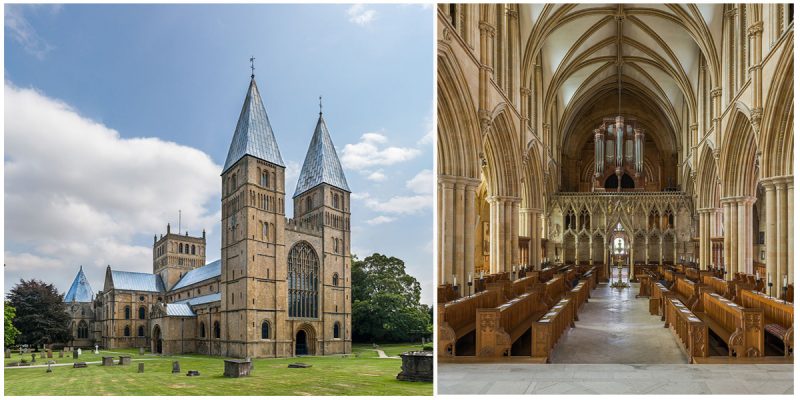Southwell Minster is a cathedral and a Minster Church in Southwell, Nottinghamshire, England. It is a remarkable example of Norman and Gothic architecture.
The Minster became the cathedral of Nottinghamshire in 1884, but the earliest church on the site is believed that was founded since the Saxon times by the first Archbishop of York, Paulinus. The church was attached to the Archbishop’s Palace, and today it is ruined.
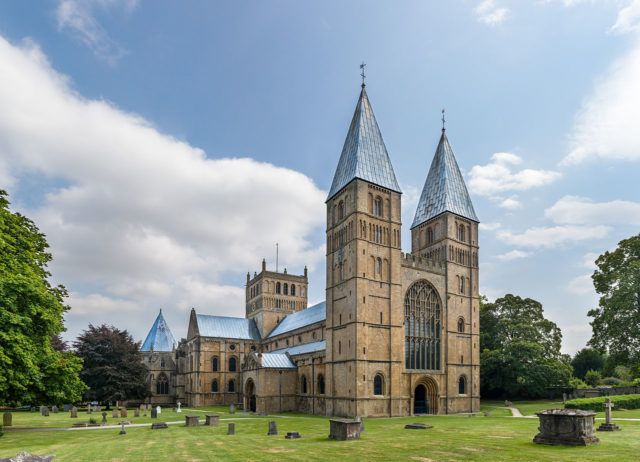
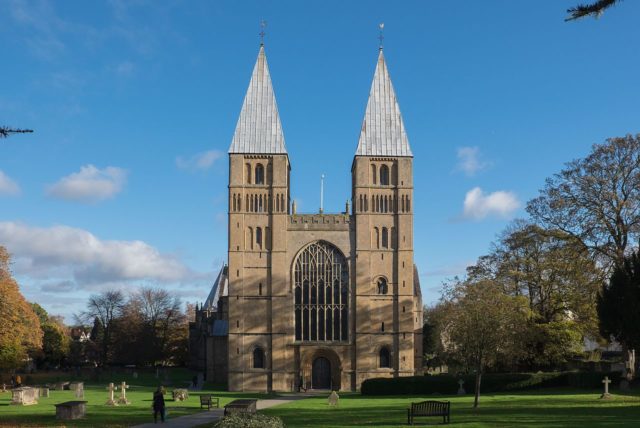
In 956, the Archbishop of York, Oskytel was given land by the King Eadwig on which he established a minster church. In 1108, the reconstruction of the church began in Norman style. It was crucial for the high altar of the previous church to be used as soon as possible, so the reconstruction started at the east end. The construction was improved with many stones from the earlier Saxon church, and today the north transept and the tympanum are the only parts of that time which have remained intact.
The fascinating part is the octagonal Chapter House carved with stone leaves and flowers in Gothic style from 1300. The attention to detail is quite extraordinary and unlike anything else in England. The original windows of the west front of the cathedral were replaced during the 15th century with one huge Perpendicular window.
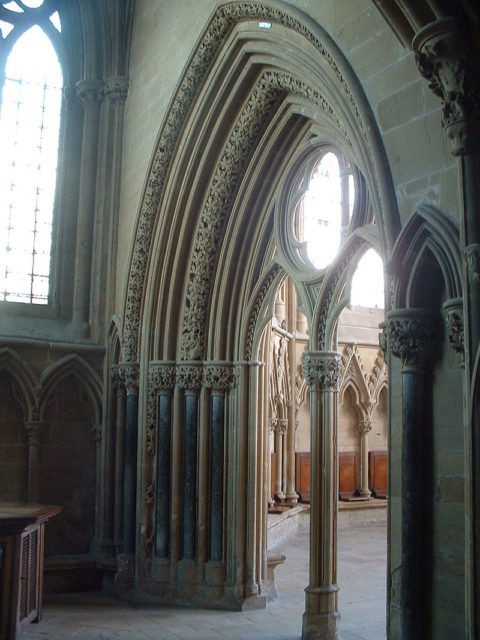
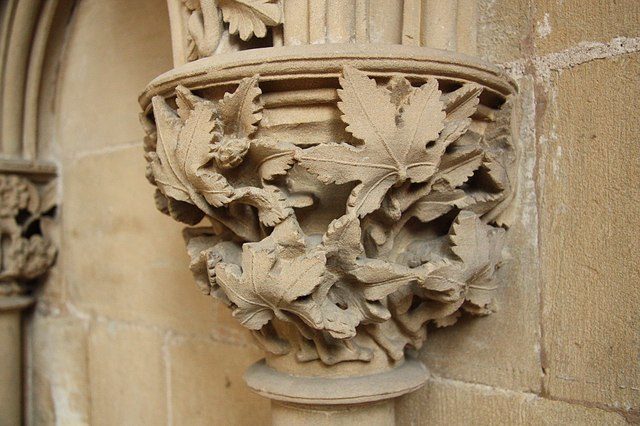
The cathedral suffered damage during various events through the centuries. In 1543 it was refounded by the Act of Parliament after it was destroyed in the English Reformation. During the English Civil War, it was seriously damaged, and the adjoining palace was almost destroyed. After the incident, extensive repairs were necessary to rebuild the cathedral. In the 18th century, it was struck by lightning, and the bells, the roofs, the clock, and the organ were destroyed.
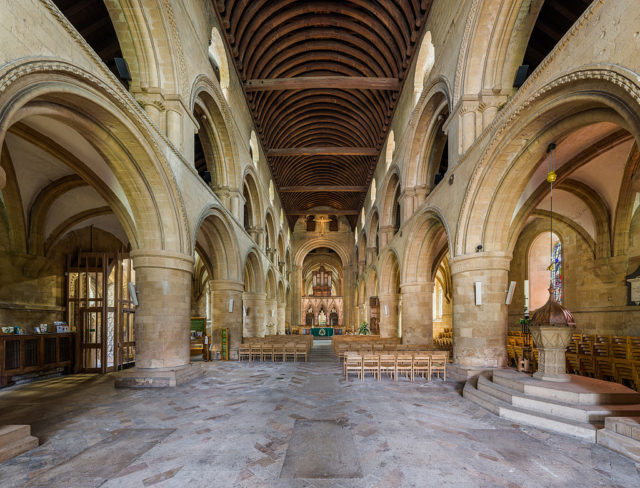
There is a traditional choir of 16 boys and men which are known as the Cathedral Choir directed by the Rector Chori. Through the years, the choir has attracted international attention. There are also other choirs including the girl’s choir and the adult Minster Chorale.
The traditional choir uses music from composers such as Charles Wood, Jean Langlais, and George Dyson. The Minster Chorale consists of up to thirty members who sing at services throughout the year.
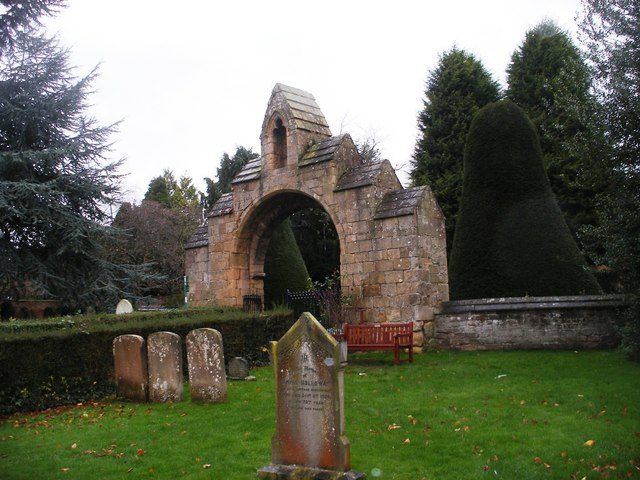
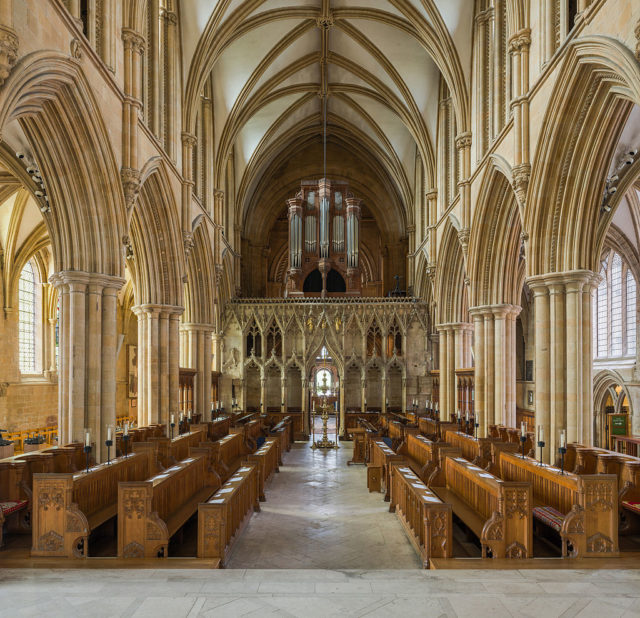
Today, the cathedral is not overfilled with tourists, but many people continue to come to worship and admire the Minster and the church which is one of England’s finest medieval churches.
It is now widely acknowledged to be Nottinghamshire’s most loved building and is open to visitors daily. There is a Visitors Center which includes the Refectory, the Minster Shop and has an audio-visual center where visitors can learn about the history of this remarkable building.
